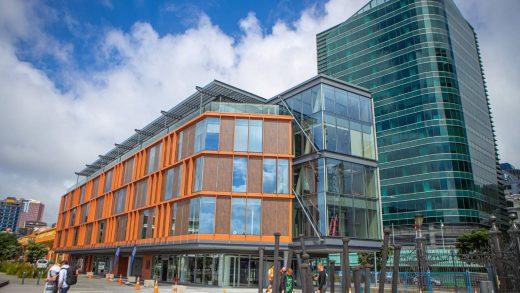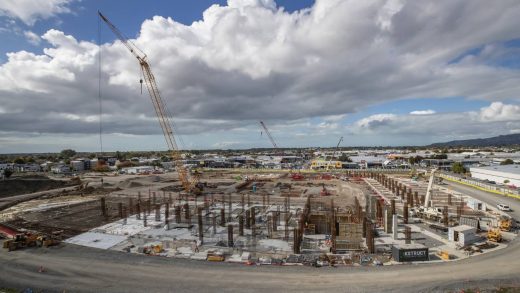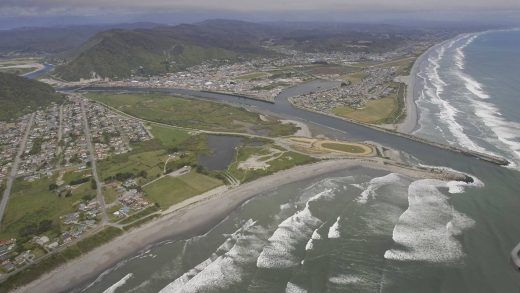
A student accommodation provider in Nelson says it will be forced to charge residents up to 20% more after its rates bill increased by nearly $30,000.
In 2021-22 Nikau Apartments, which has three buildings, paid $19,285.62 in commercial rates.
But, in 2022-23 the Nelson City Council changed it to residential rates, more than doubling the bill to $48,804.18.
“We just can’t absorb it, we just have to pass it on,” owner operator Michael Stump said.
Now, he’s questioning why his business is being charged differently to other accommodation businesses.
The council says the rates are a reflection of the number of apartments in the building and its likely use if it was sold.
Nikau Apartments offers both long-term and short-term accommodation for students and travellers and is the preferred accommodation provider for NMIT Te Pūkenga students.
Olivia Hall, Tumu Whenua ā-Rohe 3 (executive director region 3 Te Pūkenga), said the privately run business also provided pastoral care for in-house learners.
The rates change occurred in 2021, when the three buildings that make up Nikau Apartments were reassessed and deemed to be made up of separately inhabited units – in this case 14 apartments per building.
That meant Stump went from paying a commercial rating unit for each building, to paying multi-residential general rates for each building, with a separate uniform annual general charge and residential waste water charge for each apartment – 42 in total.
SUPPLIED
Student Job Search is being criticised for its “Thrive, don’t just survive” advertising campaign.
Stump said he couldn’t understand how a business was being charged residential rates, when similar accommodation businesses with apartments continued to be charged commercial rates, paying substantially less.
“We are a business, there’s just no way around it … there’s no difference between us and any other accommodation in town.”
The increase was so big they had to pass it on to students. They had started with a $10 increase but would try and stagger increases to lessen the impact on students, he said.
In total, rent would have to increase by up to $40 a week, which was a lot for students to absorb given the current cost-of-living crisis, he said.
“We’re trying to provide quality, affordable accommodation in the city centre, and that’s what the council is promoting, but at the same time they’re making up their rating system where we’re basically being penalised for doing that.”
The council’s funding impact statement allows exceptions to the “separately used or inhabited parts” (SUIP) rules for hotels, motels and bed and breakfast rooms.
Stump said the rules created two different ways to calculate rates for accommodation providers, meaning two businesses could have the same number of people but end up with two vastly different bills.
“The SUIP is only applied to self-contained units, creating an inequality and disadvantaged properties with self-contained units.”
Nelson City Council group manager corporate service Nikki Harrison said a property’s rating category was determined by Quotable Value based on two key factors.
“The property’s highest and best use, which can differ from its actual use and what the property would likely be sold as at the time of valuation.
“Nikau Apartments have been assessed as residential apartments as they are fully self-contained and would appeal to a potential purchaser as long-term rental accommodation for students at NMIT.”
Similar properties were rated as commercial because that is what they would likely be sold as, she said.
“Under council’s Funding Impact Statement, Nikau Apartments do not qualify for exemption under council’s SUIP policy.”
Braden Fastier/Stuff
Many students at NMIT Te Pūkenga are struggling with the cost of living. (File photo)
Hall wouldn’t comment on the council’s rating decision, but said students were struggling financially with the increased cost of living.
“Rising living costs are hitting students especially hard this year with many ākonga reported to be struggling with the cost of food, transport, and accommodation. The level of hardship has been noted by the increasing demand for pastoral care services requested by ākonga, including the need for financial assistance.”
Any rates increase would have an impact on students, many of whom already worked part-time, she said.


